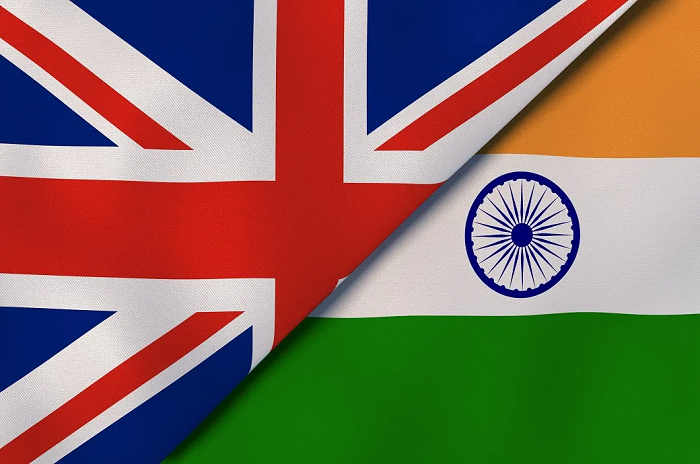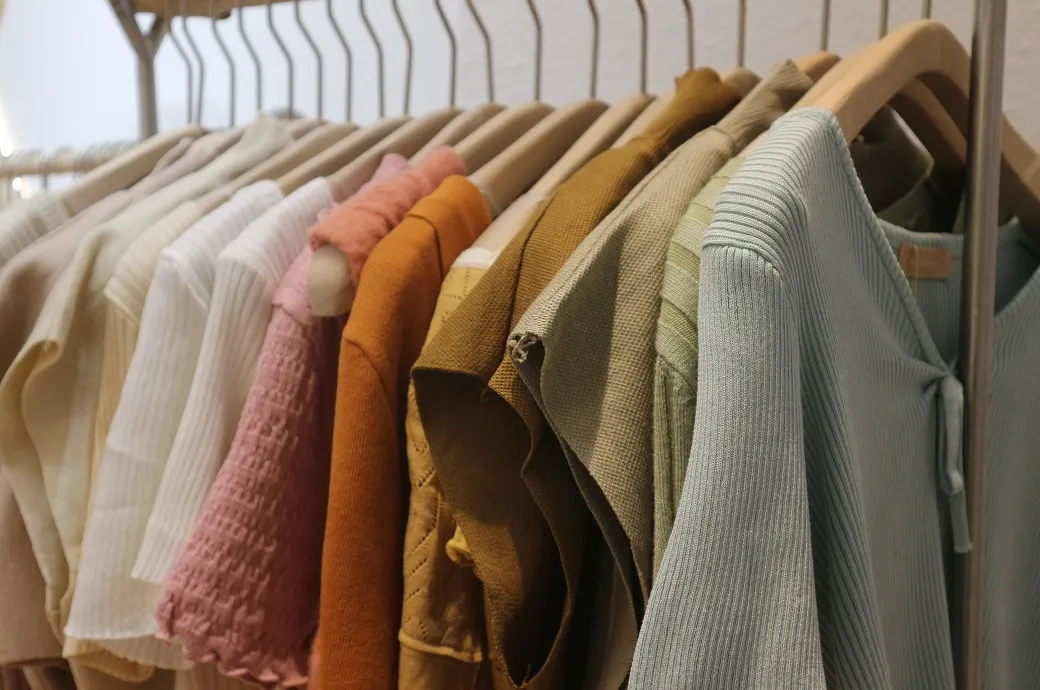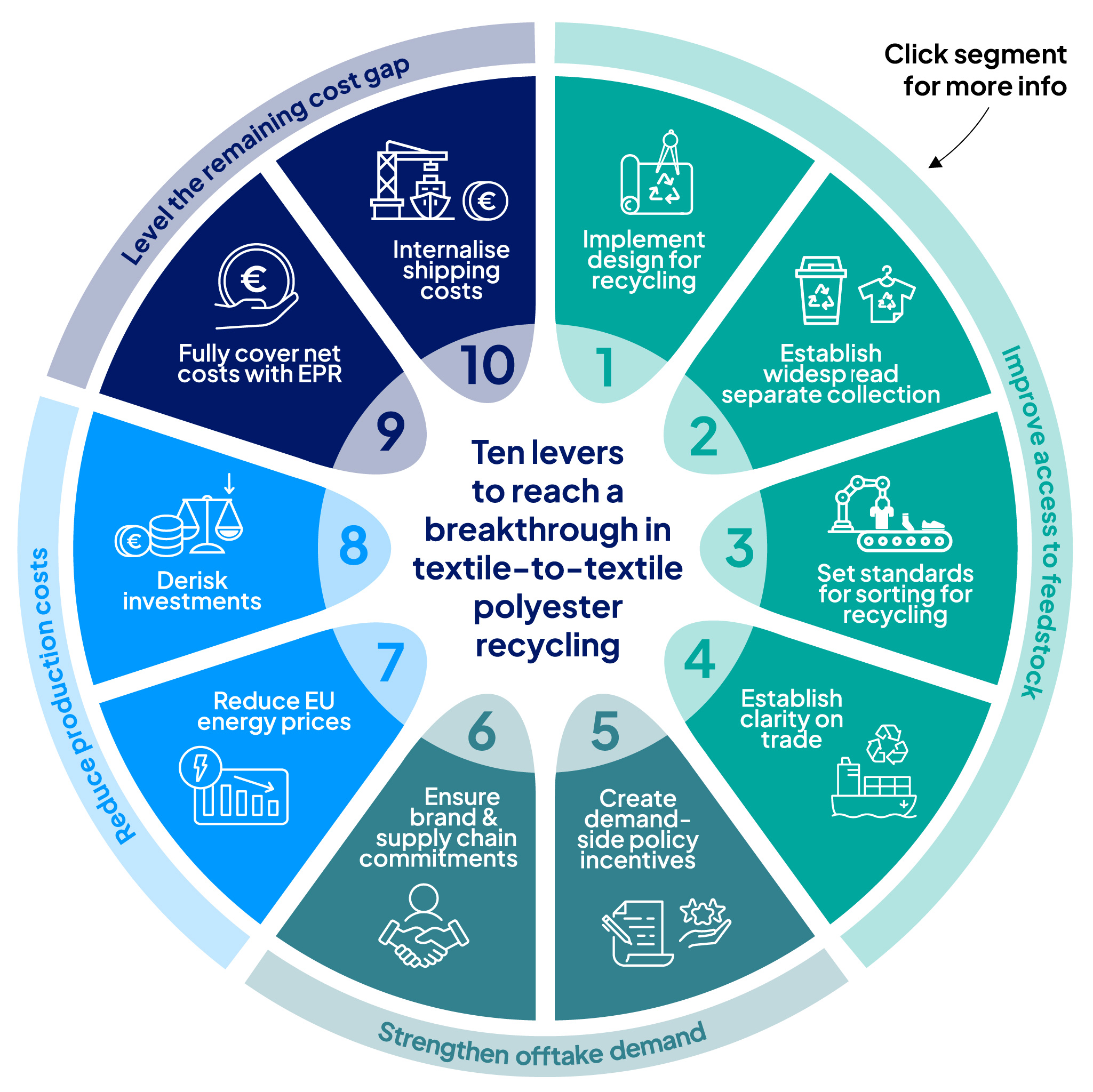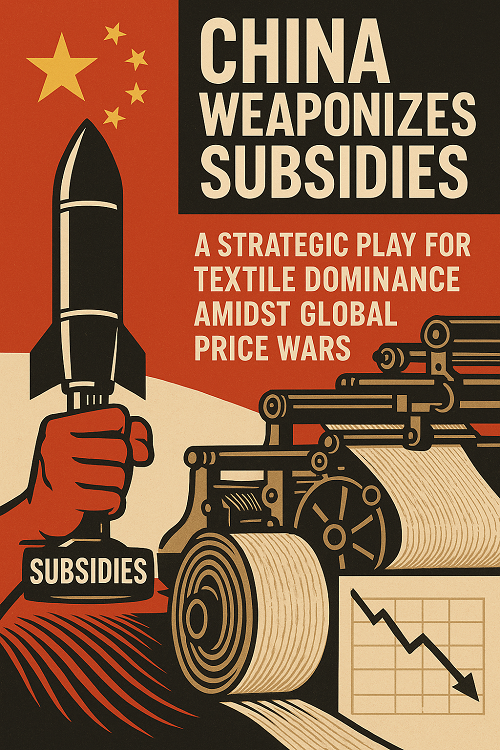FW
Growth in retail has slowed globally and this downward trend may not end till sourcing completes its transformation. That was the message Esquel Group CEO and vice chairman John Cheh delivered at the US Fashion Industry Association’s (USFIA) Annual Apparel Importers Trade and Transportation Conference in New York City recently. Retail sales in the US have fallen in recent years and the sluggish trend has deteriorated further, notes Cheh. What’s more, e-commerce players are taking more and more market share from physical stores and getting into their own private label lines, further increasing competition, further, discounting has reached an all-time high or low, depending on how you look at it.
Last year, Cheh disclosed, citing a 2016 Cotton Incorporated Retail Monitor survey, fast fashion retailers were selling an average of 8 per cent of their apparel product at a discount, for mass stores it was 16 per cent, specialty stores 42 per cent and department stores were selling a whopping 73 per cent of their apparel at a discount.
“What’s the point of lowering your cost, squeezing your suppliers for 5 cents or 10 cents or 30 cents,” which rarely ever amounts to much more than a 1 per cent discount, Cheh explained and all the while the discounts at retail are closer to the 30 per cent to 40 per cent off mark. “The markdowns are so much bigger, so what are we talking about in terms of keeping your costs down?”
These factors all considered, Sourcing 4.0 will be the way forward for retail to work its way out of this rut. There are four key elements to Sourcing 4.0, Cheh explained: product, quality, time and price.
Where many retailers have missed the mark while they’re busy scrambling to ward of Amazon and fast fashion, is that they’re not delivering a product consumers actually want to buy. Next the focus should turn to quality, another area that for some has fallen by the wayside in the hunt for ever cheaper product from whichever country can make it. When it comes to timing, suppliers can’t be left to bear the brunt of doing everything faster. In Supply Chain 4.0, speed comes with partnership. On price, Sourcing 4.0 will mean companies consider unit labour cost, rather than labour cost alone.
The Woolmark Company announced a two-season partnership with renowned Japanese fashion label Facetasm for the development of its Autumn/Winter 18/19 collection (Woolmark capsule collection will be unveiled in January in 2018 in Paris) and Spring/Summer 19 wool-rich products, ahead of its show at Paris Men’s Collection. Both the capsule collections will be Woolmark-certified.
The partnership marks the beginning of a long-standing relationship where Woolmark will work closely with and support Facetasm’s design team, which has already reviewed Woolmark’s sourcing guide, The Wool Lab, drawing on the most innovative fabrics and yarns for the upcoming collections and connecting the design team with the wool supply chain.
Facetasm founder/designer Hiromichi Ochiai travelled to Australia with the support of The Woolmark Company to visit the source of Merino wool, experiencing wool-growing properties first-hand and gaining invaluable insight and inspiration for his future collections. “I believe Merino wool is an essential ingredient for the brand to move onto the next step in its creation and I think this collaboration with The Woolmark Company is a great opportunity for the brand to expand even more,” Ochiai added.
Wool has been an integral part of Facetasm’s collections since its launch in 2007, highlighting the versatility of the fibre and its position as the premier ingredient in luxury apparel. Its unique creations are deeply rooted in Tokyo’s edgy street culture, quickly garnering global praise. Woolmark’s MD Stuart McCullough points out Hiromichi Ochiai will be their first global wool ambassador from Japan - a market that remains important in terms of creativity and impeccable quality, further expanding Merino wool’s legacy beyond traditional tailoring.
Itema, the largest privately-owned manufacturer of best-in-class weaving machines, spare parts and services, plans to showcase its innovations at ITMACH India from December 7 to 10 at The Exhibition Centre, Gandhinagar. Itema offers textile manufacturers top three weft insertion technologies such as rapier, airjet and projectile, in what is the most comprehensive portfolio on the market today to weave the widest range of fabrics.
During the 2017 edition of ITMACH, Itema will exhibit its best-in-class airjet weaving machine A9500p, in an execution tailored to weave the most popular fabric in the basin, denim. Airjet weft insertion technology is the most diffused to weave denim, due to the highest possible production speed achievable. The Itema patented and highly innovative solutions allow denim mills to benefit from a significant reduction in energy consumption, thus ensuring twin benefits of the highest production speed and the lowest power consumption in the market.
The popular trend to weave stretch and super stretch denim fabrics with dedicated weft yarns inspired Itema to create and patent the innovative Brush Lycra Clamp (BLC) – nozzle to weave elastic weft yarns. Due to the BLC nozzle, the weft is held without movable parts to ensure superior fabric quality and reliability.
The Itema iREED® significantly reduces the air consumption and guarantees a higher efficient weft insertion. The new reed tunnel shape and new position of the relay nozzle optimise air flow in the reed channel for a higher efficiency weft insertion.
The saving is also due to a reduced air pressure and to the single hole relay nozzle, which, at the same time, greatly reduces the need for maintenance of the Itema airjet weaving machine.
The Itema A9500p with its double tandem nozzles enables cost savings and superior fabric quality. The double tandem nozzles guarantee a perfect distribution of the pushing force on the weft using lower air pressure, thus leading to multiple benefits like reduced stress on the yarn ensuring top fabric quality and the possibility to weave with lower pressure, ensuring energy saving.
The Itema A9500p enables weaver to weave faster, producing better fabrics and with a smarter use of resources. There will be a live demo of the machine in operation throughout the exhibition.
Walmart has joined the Cotton LEADS program that supports responsible production practices by cotton growers. Ken Lanshe, Walmart’s Vice President, General Merchandise, Technical, Quality and Sustainability says through the Cotton LEADS program, Walmart hopes to learn from and collaborate on efforts that US cotton farmers are taking to be responsible and sustainable producers.
Walmart joins over 480 companies worldwide which recognises both the environmental gains cotton growers in Australia and the United States continue to achieve and their commitment to meeting the challenge of growing sustainable cotton.
Mark Messura, Senior Vice President Global Supply Chain Marketing at Cotton Incorporated, a founding member organisation of the Cotton LEADS™ program explains, the program is at the forefront of the world’s efforts for sustainably-sourced cotton. Joining Walmart in the Cotton LEADS™ program brings the scale and commitment of an industry leader together with the leaders in cotton sustainability and responsibly-sourced cotton.”
The Cotton LEADS™ program is a joint effort of the Australian and US cotton industries. Its founding members are Cotton Australia, the Australian Cotton Shippers Association, the Cotton Foundation, the National Cotton Council of America, Cotton Council International and Cotton Incorporated. The program is designed to raise awareness about responsible growing practices and commitment to continuous improvement among cotton producers in the member countries.
VF Corporation, a global leader in branded lifestyle apparel, footwear and accessories, has joined the Fur Free Retailer program by partnering the Fur Free Alliance, an international coalition of 43 animal protection organisations. As a Fur Free Retailer, VF is reinforcing its commitment to fur free products and communicating a no fur policy, which covers more than 20 brands, including Vans, The North Face, Timberland, Wrangler, Lee and Napapijri. VF released its first-ever Animal Derived Materials Policy earlier this year and announced that its brands would no longer use fur, angora or exotic leather.
The online Fur Free Retailer list, provides consumers accurate information on a retailer’s fur policy, which permits them to make informed purchasing decisions. Letitia Webster, Vice President of Global Corporate Sustainability at VF Corp says, joining the Fur Free Retailer program, VF and reiterates they are serious about animal welfare. Sustainability and respect for nature are fundamental values for VF and all our brands and we will continue to partner with respected animal-rights organisations and like-minded companies to promote the development of viable commercial substitutes to animal materials.
In 2014, VF’s brand The North Face announced its Responsible Down Standard (RDS), a global standard through which any brand can evaluate and certify its complete down supply chain. The RDS was developed in partnership with Control Union and Textile Exchange, which now manages the program. Currently, 80 other brands from the outdoor, apparel and home industries have initiated certification of their supply chains through the RDS. The North Face® uses 100 per cent certified down across all product lines.
Taiwan-based garment manufacturer Quang Viet Enterprise, has shown interest in Vietnam’s swimwear makers King Hamm Industrial, for purchasing stock valued at $11.4 million by participating in a rights issue. The purchase is expected to give Quang a 42 per cent stake in one of Vietnam’s biggest swimming and functional wear supplier.
King Hamm, manufactures and supplies high-end swimwear as well as functional wear for the export market that is targeted at large international brands such as North Face and Under Armour. Quang’s down jackets are purchased by high-end brands like Nike, Adidas and North Face among others. Quang Viet showed an interest in buying 13.65 million new shares that were issued by King Hamm to the Taiwan Stock Exchange. The shares were issued at the rate of New Taiwan dollar 24.5 per piece.
Recently, Quang showed an interest in expanding its base in the Middle East. It was looking to acquire 60 per cent stake in Atlanta Garment Manufacturing Company, based in Jordan at$ 2.7 million, as Quang anticipates sales growth of 15 per cent Y-o-Y next season. The total gain to accrue from both these acquisitions in the next calendar year is expected to range between $52 million to $57 million.
The Sustainable Apparel Coalition (SAC) has released early registration of the Higg Facility Environmental Module (Higg FEM), a self-assessment tool that globally standardises sustainability measurement for apparel, footwear, and textile manufacturing facilities. The Higg FEM, optimised for use at an industrial scale, enables factories of any size, anywhere in the world, to assess sustainability performance and easily share results with supply chain partners.
The improved Higg Facility Environmental Module breaks down silos created by the lack of transparency in our industry, informs SAC CEO Jason Kibbey disclosed. With the Higg FEM, supply chain partners can better see one another's performance and make valuable sustainability improvements in factories around the world. Developed by the SAC, Higg FEM helps businesses at all tier in the value chain collectively perform better by decreasing the negative environmental impact of manufacturing while saving money and improving their performance and relationships with supply chain partners.
Currently used by over 8,000 businesses globally, the updated version helps further reduce audit fatigue and improve performance benchmarking by measuring water use, waste, emissions, and assessing chemicals management with increased analytics. The robust tool permits business partners to successfully collaborate to drive performance improvement across the value chain.
The Pakistan government has permitted cotton imports from India to meet growing demand from key textile industry, however, it placed a tough set of rules for consignments. “Pakistan is likely to start issuing permit for import of cotton from India through the land route in a next few days under new tough conditions that may not fully ease already imposed restrictions on trade,” said an official.
Pakistan, is the world’s fourth largest cotton producing country, is currently short of around four million bales a year to meet the domestic demand of nearly 16 million bales. Officials say, a permit from the Department of Plant Protection of Pakistan’s food ministry is mandatory, under the new phytosanitary conditions, for import of unprocessed cotton, including raw or seed cotton, cotton lint, linters, cotton waste and cotton stuffing from its neighbour.
The National Plant Protection Organisation would inspect and test the consignments as per necessary procedures and further ensure the cotton is free from biosecurity pests. The goods must be clean and free of contaminant seed, soil and plant debris and other bio-security risk material prior to arrival in Pakistan. Naseem Usman, Chairman of Karachi Cotton Brokers Association expects import of around 0.7 million bales from India this year. Usman said textile mills have signed import contracts of 1.8 million bales from countries, including US, Brazil, South Africa and the Middle East.
Textile ministry’s official says, stringent conditions are a must to protect any threat to local cotton crop. Due to flawed cotton ginning process in India, it has been observed that cotton seed are also found in the imported consignments. “This seed may contain diseases and carry eggs of various insects and pests. So, it is important to allow import of cotton after going through all phytosanitary requirements. Despite this Usman argued Indian cotton is good in quality, while it would be convenient for them to buy from India, as delivery time is short and price is feasible.
DL1961 and Lenzing AG have announced another innovative partnership to make DL1961 denim more sustainable. Using Lenzing’s Refibra™ branded lyocell fibres, DL1961 is creating a new denim blend that utilises renewable wood sources and employs a supplementary proportion of recycled cotton scrap to create a garment that is sustainable and innovative yet maintains its premium quality, feel and fit.
Refibra™ fibres, the new generation of TENCEL™ branded lyocell fibres, are made from wood pulp that contains a supplementary proportion of cotton scraps from cutting operations. Lenzing is the first manufacturer to offer man-made cellulosic fibres featuring recycled material on a commercial scale and is a pioneer in this technology.
Bringing down the need to extract additional raw materials from nature, helps reduce the impact on the environment. Refibra™ fibres have thus initiated an important step towards circular economy for textiles by re-using a certain proportion of cotton scrap. What’s ground-breaking about Refibra™ fibres is that it combines both advantages, recycling of cotton scraps and an innovative sustainable production process.
The re-introduction of GT Korea, a garment machinery and textile industry trade show, is expected to boost South Korea’s presence as a global sewing powerhouse. To be organised by the Korea Sewing Machinery Industrial Association (KOSMIA), South Korea-based private exhibition organiser SeoulMESSE International, sewing industry magazine Monthly Bobbin Journal and sales agency Jes Media.; GT Korea 2018 will be held at the Korean International Exhibition Center, Ilsan, Gyeonggi from November 14 to 16, 2018.
South Korea is one of the top sewing nations worldwide, yet it did not get an opportunity to host a specialised exhibition at an international scale following recession in the domestic market.
A recent survey by Monthly Bobbin Journal notes over 90 per cent of sewing industry firms felt a need to hold a South Korean exhibition for garment machinery and textiles. KOSMIA, the former organizer of SIMEX (Seoul International Sewing Machinery Exhibition) and GT Korea 2018’s other organisers were prompted to re-introduce and provide a new title for GT Korea — which hasn’t been held since SIMEX in 2005 — to showcase South Korea’s importance in the international sewing market, while also ensuring international companies also get a platform to display new developments and innovations in these areas.
Around 400 booths and 120 companies are expected to participate in four exhibition categories at GT Korea 2018. These include: garment machinery and parts; textile machinery and parts; fabric and technical textiles; and non-woven. participating countries will include China, Indonesia, Taiwan and Vietnam.












